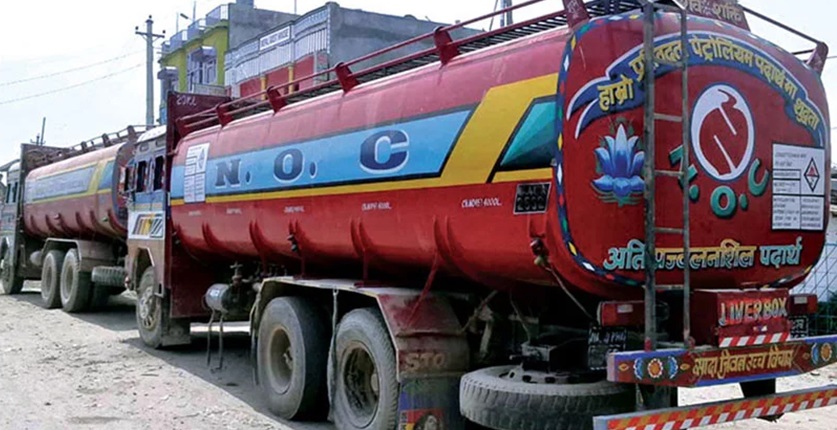KATHMANDU: The completion of the second phase of the Motihari-Amlekhgunj pipeline project is set to displace 104 tankers transporting petrol and kerosene along the Barauni-Amlekhgunj route.
With the Nepal Oil Corporation (NOC) now transporting petroleum products via the pipeline, concerns over the future of tanker operations have escalated.
The regular transport of petrol and kerosene through the pipeline is expected to begin this month, prompting three organizations involved in petroleum transportation from Barauni to Amlekhgunj to demand proper management for their displaced operations.
President of the Amlekhgunj Petroleum Transport Entrepreneurs Association, Sudama Prasad Sah Kanu, said their demands include the management of the 104 tankers and trucks operating on the Barauni-Amlekhgunj route, the regulation of private transport trucks, and contract agreements for entrepreneurs owning individual tankers.
“We had announced a protest program starting Sunday, but we decided to postpone it for 10 days after receiving a letter from NOC addressing our demands,” Kanu said.
The Amlekhgunj Petroleum Transport Entrepreneurs Association, Nepal Transport Independent Workers Organization Unit Amlekhgunj, and Nepal Petroleum Tanker Drivers Association Unit Amlekhgunj have jointly threatened phased protests if their concerns remain unresolved.
Pralankar Acharya, Chief of NOC’s Provincial Office in Amlekhgunj, acknowledged the complexity of the situation, noting that the provincial office lacks the authority to address the demands.
“We have informed the central office about the concerns raised by the transport entrepreneurs. The agitation has been temporarily suspended to allow time for central-level discussions,” Acharya said.
The shift to pipeline transport has raised questions about the future role of tanker operators in the petroleum supply chain.
Transport organizations are calling for a sustainable plan to ensure the livelihood of tanker owners and workers affected by the transition.









Comment